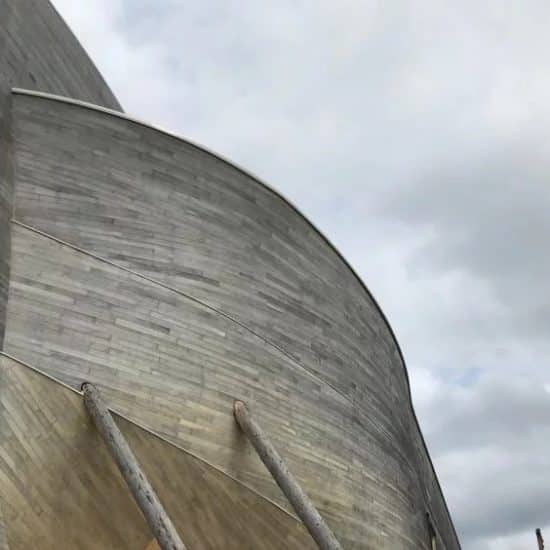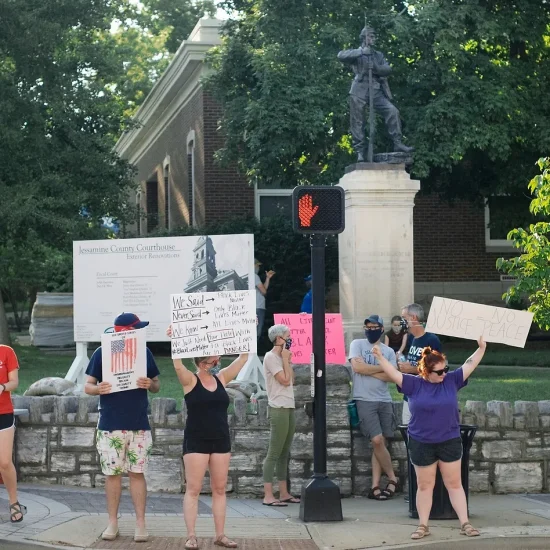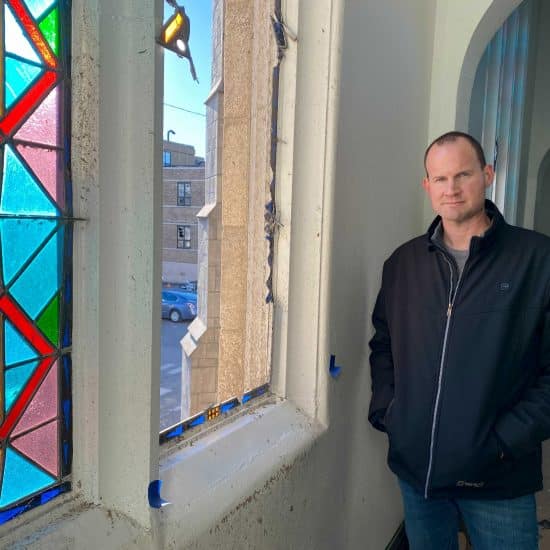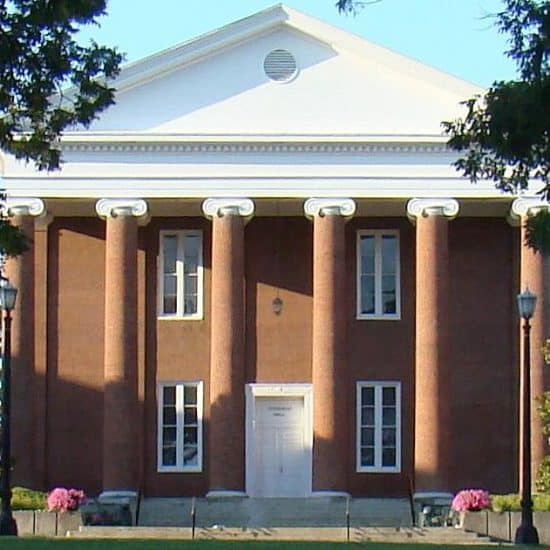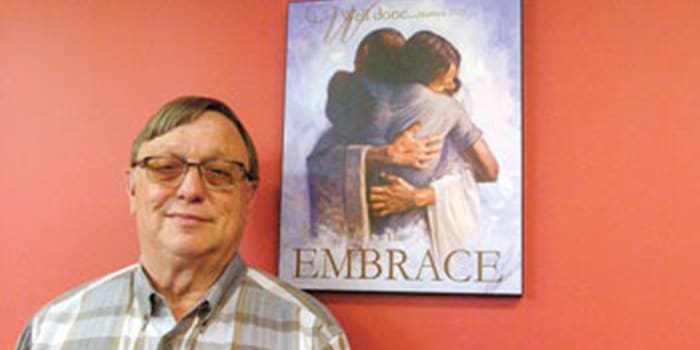
ELIZABETHTOWN, Ky. (Western Recorder) — Denver Copeland candidly says he is an “out of the box” pastor. His track record in almost three years shepherding Stithton Baptist Church gives evidence to that perspective.
“One of the biggest problems is that people don’t want to change,” said Copeland, who has pastored the church since November 2016 after pastoring churches in Hawaii, Alaska, Missouri, Colorado, Germany and Nevada.
“We don’t change the message, but we do what it takes to be outward focused. The reason many are dying is they are inward focused.”
No one can accuse Stithton Baptist of lacking an outward focus. The church has seen the abundant ways that God has worked in activities and ministries that include:
— The church purchased an adjoining piece of property and uses it for a clothing and food ministry called Esther’s Closet. It’s open twice weekly and serves an average of 100 families a year. The ministry benefits low-income and homeless people in the county.
— Free Christian counseling is offered by a licensed marriage and family therapist and a certified alcohol and drug counselor. Some of the common issues addressed in those counseling sessions include marital or relationship problems, parenting guidance, mental illness, grief and loss, self-esteem issues, enrichment of one’s faith and connection to God, personal goal setting and development as well as substance abuse and addiction.
— Musical concerts occur on a regular basis. Since May, the church has hosted Dallas Holm, the Isaacs, Jason Crabb, NeVaeh and the Hollingsworth Family.
— In July, Stithton offered a basketball camp for grades 1-6.
— Hooray for Heroes was not a church event, but Stithton hosted the activity in its parking lot, distributing Bibles and other information during the activity.
— At various community events, especially sporting events, the church will have a booth and distribute information.
— The church has determined to have a presence at any school-related or community event.
— Stithton also is working with a local non-profit, Mission Hope for Kids, proactively investing in the lives of at-risk children.
— More than 400 children in the county are considered homeless, and Stithton has helped provide food for many of them over weekends.
— In June, it hosted World Changers. Last year more than 100 workers came into the Hardin County area, and Stithton raised $20,000 to pay for materials to help with home improvements for area residents. This year there are 300 people scheduled to arrive in Elizabethtown, so there will be an even greater need for funds to buy materials. “We will work in 25-30 homes and a few churches,” Copeland said.
— The church has hosted Power for Life teams, drawing people to see “the world’s greatest exhibition of power, strength, speed, motivation and inspiration,” according to a promotional poster.
— It has partnered with governmental entities to promote adoption and foster care as well as helped low-income residents obtain housing loans. It is involved with the state’s Uniting Kentucky effort, and had Kentucky First Lady Glenna Bevin speak there on foster care. Uniting Kentucky brings churches and community partners together to support more than 9,500 children in the state who are in out-of-home care. The church is diligent in informing people about single family housing repair loans and grants through USDA Rural Development.
“The Lord has blessed us — we’ve had TV and newspaper coverage,” Copeland said. “We’ve met with mayors in the area on low-income housing.”
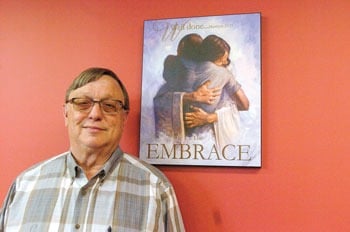
Denver Copeland (Western Recorder)
Testimony to the results of Stithton’s varied efforts can be seen in the church’s statistics. Since Copeland’s arrival, worship attendance is growing at a 20 percent rate each year. Giving is up 40 percent. This year the giving is up more than $150,000 than what it was three years ago. Giving to the Cooperative Program has increased significantly — even higher today than years ago when the church had a significantly higher membership. Total missions giving is up 4 1/2 times what it was three years ago. AWANA involvement has doubled and children’s area space has doubled. When Copeland arrived, the church had indebtedness of about $400,000. Today that is down to about $250,000.
“We try to reach the community in any way we can,” said Copeland. “If a school calls with a need, our answer is always yes — and then we figure out how to do it. People have to realize you care — if not, you won’t get them in the doors of the church.”
He’s realistic to know that not all activities and ministries yield equal results. “If you do 100 different things, you may get one person for each thing. There is no get rich quick — if there was, we would have done it years ago.
“I really believe in true transparency in ministry and reaching out in the community. I believe people want to help people. We don’t have committees meeting and voting on what the Bible has told us to do. We’re going to do it — and people will give to it. We adjust our budget when we need to. We let people know what we are doing.”
Copeland’s Wake-up Call
“God worked me over when I was 40,” he recalls. “I had been out of the ministry for three years, then God threw me back into the ministry (in the mid-1990s). I said that He would have to put me back, I can’t do it — I could only do it by following His Word. I said, ‘If it’s in Your Word, I’m going to follow it to a T.’ My wife and I went to the altar, and God said to ‘do it My (God’s) way, be transparent, be real. Younger people want you to be real — they can spot fakes. I’ve tried to do everything God told me to do in the church. It’s amazing what happens when you finally let go and let God. If God breaks your heart enough, you’ll figure it out.”
In 1996 he was serving part-time as an associate pastor while operating his own business. In a book he wrote reflecting on that time, he said his business had lost tens of thousands of dollars. He said a clear voice from God said to him, “I never told you to go into this business.” And as he prayed, Copeland said God told him to “get out of the business, but not to sell it.”
He and his wife did sell the inventory, but they were left with a debt of more than $600,000. Their only option was to liquidate everything they could, so they sold houses, inventory and his truck — leaving them with household furniture and a car. With three young children, they loaded a U-Haul and headed for Anchorage, Alaska, moving into a three-bedroom apartment. He was asked to fill the pulpit at North Kenai Baptist Church in Nikiski, Ak., and soon was called to be its pastor.
A year later he was faced with discouragement, realizing that only four visitors had attended in that past year. He was burdened that the church was not reaching any new, unsaved members of the community. He asked the Lord how to reach the community, and it was that experience that has guided his ministry to this day.
A pivotal moment in his ministry at the Alaskan church came when he preached a sermon “No Fishing in the Parking Lot.” He related how people buy the best fishing equipment, the best fishing pole, the best lures, the best boat, everything they need to fish successfully. “How foolish it would be then to sit in the parking lot and try to catch fish,” he told the congregation, giving illustrations on where they as Christians could put their nets to be fishers of men.
The next Sunday he arrived at the church to see a sign in the sanctuary that said “No Fishing in the Parking Lot.” That fueled the desire in that church and extends to today at Stithton to reach out into the community as a means to tell people about Jesus.
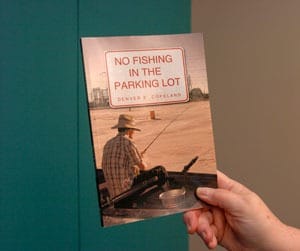
“No Fishing in the Parking Lot” is a booklet developed by Copeland as a pastor in Alaska, containing illustrations on where they as Christians could put their nets to be fishers of men. (Western Recorder)
“We don’t do feeding, clothing, ministering because we like it. We are doing ministry for Jesus,” he writes in his book. “We don’t try to knock them over the head and tell them about Jesus; we meet their needs. When their needs are met, we are able to tell them about how much God loves them.
“Do they all come to Christ? No, but I know of no other program where everyone comes to know Him. We don’t catch every fish in the ocean, but when we start fishing we will catch some.”
One distinctive about Stithton is the scarcity of committees.
“We don’t have many committees any more. You have to ask … how many are saved because of the committee; how many grow (as a Christian) because of the committee? Stithton Baptist Church is being the church God created her to be. We as Christians have to become the Christians that Christ created us to be in Him.”
Web Presence
One of Copeland’s first initiatives at Stithton was to revamp the website (www.stithton.org), using that not only to communicate with members, but to promote activities and ministries to the community. By early June, the website had recorded more than 169,000 visits. In May it had more than 7,000 visits for the month. In the last 12 months it has had 75,000 visits. In addition it maintains a Facebook page that reaches as many as 32,000 people.
“People go to our website for information. We want it to be a place they can go,” Copeland said. “And we work hard on social media.”
Fishing Tips
In Copeland’s book, he has several observations related to being fishers of men. They include:
— We must be anchored to the Rock, but geared to the times.
— You may have the greatest visitation program in the world, but if people aren’t coming to your church, it isn’t working.
— A point about fishing is not to fish in another person’s fishing hole … if you are just attempting to catch a fish from someone else’s pond and release it in your pond, that is not healthy or ethical.
— Leaving the church in a better position to minister when you leave than it was when you arrived is a great gift to (a) congregation.
— No one will have to go out and ‘beat your church’s drum’ to tell what you are doing; everybody will see what your church is doing and what it stands for.
— I believe Sunday School is where you put all your best effort. If Sunday School grows, all the rest of your services will grow.
— Sometimes we stop the Spirit’s work because of the way we think things ‘ought to be done.’ Allow God to do a new work in a new way. The message can NEVER change but the methods can.
— Until we stepped out in faith, we didn’t see God’s hand at work. When we stepped out in faith we saw God working in ways we never could have imagined.

